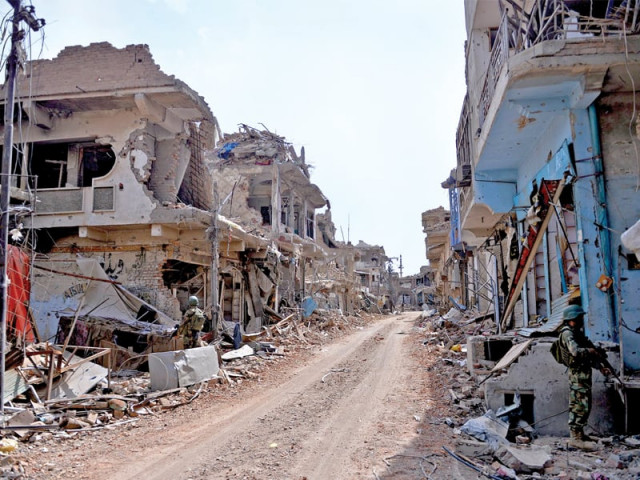Trickling back
IDPs are in extremis because government put them there, and denying them aid is an act of breathtaking callousness.

Equally clear is that those displaced do not want the extremists back in their areas, but that is going to mean a continued military presence for an indeterminate period. There are numerous anecdotal reports of extremists altering their appearance in order to blend with the local population, and unsettling reports that some of these reconfigured extremists have filtered down to Karachi and other cities. Again, how many of the extremist cohort have managed to escape the trap is impossible to know, but they had plenty of advance warning and a proportion reportedly crossed the border into Afghanistan.
Claims by army spokesperson that they have the extremists ‘on the run’ must be viewed with caution. The extremists may have lost large amounts of material and their physical bases in places like Miramshah, but they are relocating rather than retreating, and will regroup over time. The problem has been displaced rather than resolved.
It is now almost a month since the operation began and there is little sign of it ending in the near future. Early claims that it would be over ‘by the middle of Ramazan’ were wildly off the mark, and although some provision had been made to accommodate the IDPs, it was never going to be sufficient and was anyway rejected by a majority as being culturally unacceptable for a variety of reasons. There is now an IDP diaspora centred on Bannu and the surrounding districts, but spread widely in private homes and government buildings, with schools in particular being occupied by the displaced.
Of major concern is the health of the IDPs. There has been a poor response to the appeal for doctors and paramedics that was made by the Pakistan Institute of Medical Sciences (PIMS). The centre set up by PIMS to register volunteers to work with the IDPs has had few takers. It is estimated that there are just 17 doctors at the Bannu District Headquarters (DHQ) hospital and there was no pre-existing infrastructure in the area to deal with IDPs. Pharmaceutical companies have also been backwards in coming forward to help. Women IDPs in particular are suffering from a paucity of medical assistance. Many are anaemic, malnourished and have a range of maternity-related problems. There are few nurses appropriately qualified and most women will not accept a male doctor no matter how experienced or qualified.
The government has taken a principled position in terms of refusing to seek external help, but it is apparent that the government simply does not have sufficient resources for the size of the crisis. There is a range of international organisations in Pakistan that would be willing to help if asked, some of them having large pre-placed stocks of essential relief goods and medicines. The IDP problem is not going away any time soon and is going to get worse before it gets any better. The duty of care in this instance overrides the principled imperative. The IDPs are in extremis because the government put them there, and denying them aid is an act of breathtaking callousness.
Published in The Express Tribune, July 13th, 2014.
Like Opinion & Editorial on Facebook, follow @ETOpEd on Twitter to receive all updates on all our daily pieces.















COMMENTS
Comments are moderated and generally will be posted if they are on-topic and not abusive.
For more information, please see our Comments FAQ